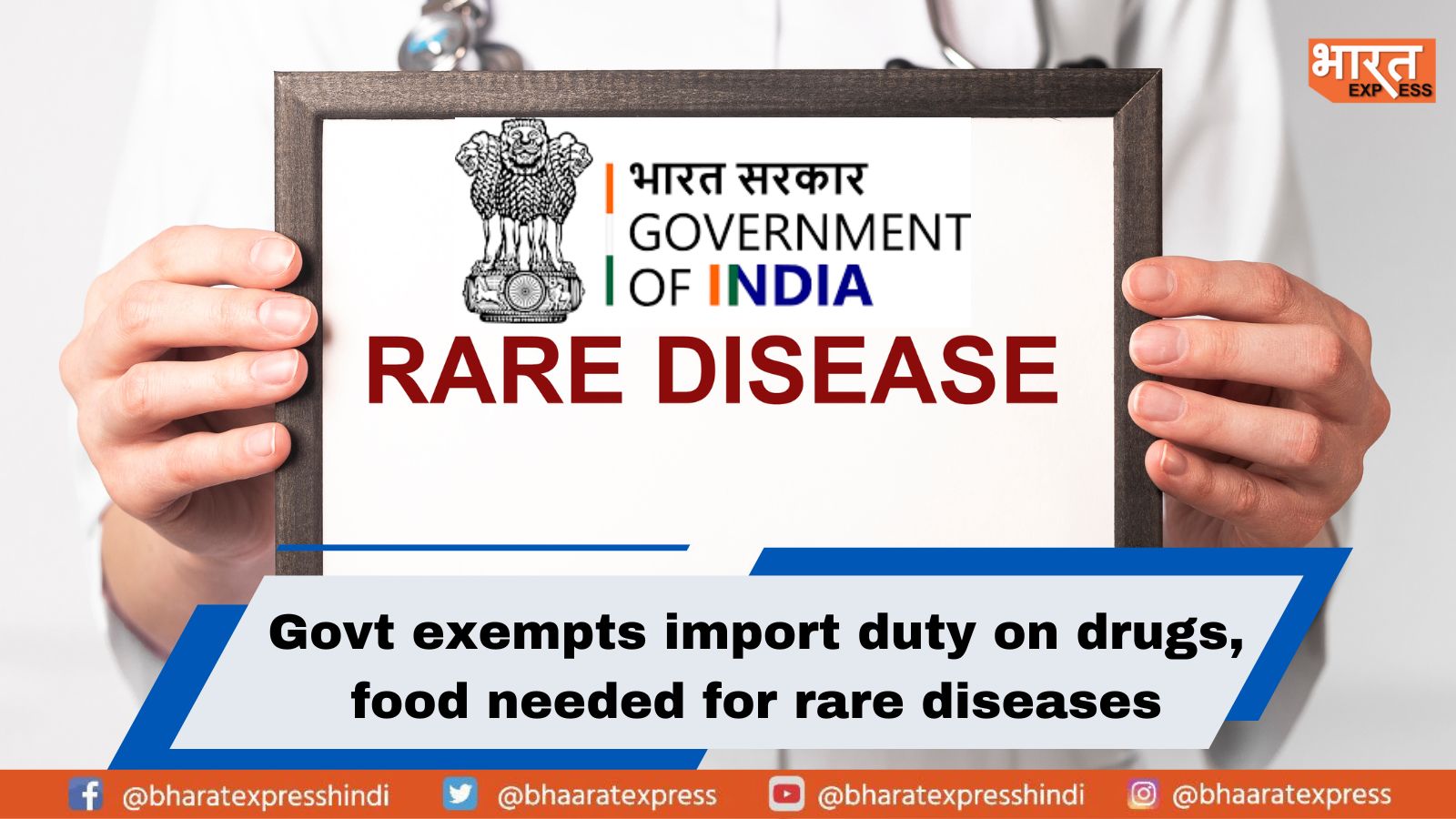
In the process of helping patients suffering from the rare disease, the government of India has come up with the policy of import duty exemption starting from 1 April 2023.
It’s been evident that more than 7,000 diagnosed rare diseases in the world and over 350 million individuals suffer from them, with nearly one-fifth in India. Additionally, every year this ratio is increasing. To tackle these kinds of health issues, on March 31, 2021, the Delhi High Court directed the Union Government to finalize and operationalize the new National Health Policy for Rare Diseases.
From April 1, 2023 all rare diseases listed under the Rare Diseases National Policy, the government has waived off import duty on rare disease drugs and food for special medical purposes imported for personal use for the treatment. Along with this, the Government has also fully exempted Pembrolizumab (Keytruda) used in the treatment of various cancers from basic customs duty.
The importer must present a certificate from the district’s civil surgeon, district medical officer, or central or state director of health services to be eligible for this exemption.
According to the ministry, most drugs and medicines are subject to a 10% basic customs charge, although some categories of life-saving medications and vaccines are exempt from duty altogether. While specific drugs are required to treat Duchenne muscular dystrophy or Spinal Muscular Atrophy have already received exemptions, the government has been receiving numerous requests for customs tax relief for other rare diseases treatment drugs and medicines.
The treatment of rare diseases is expensive and along with these there medicines, other drugs and special food which are given to patients are also expensive so they need to be imported. According to research, minimum treatment cost of a 10kg child who is suffering from a rare disease is around 10 lakh which is the minimum amount and can go up to 1 crore or even more with time, age and daily medicine demand.
With such steps coming from the union government, hopefully curing rare diseases will become more economical and approachable for the people of our country.

















